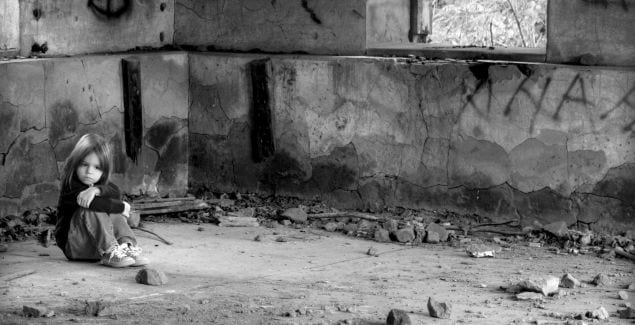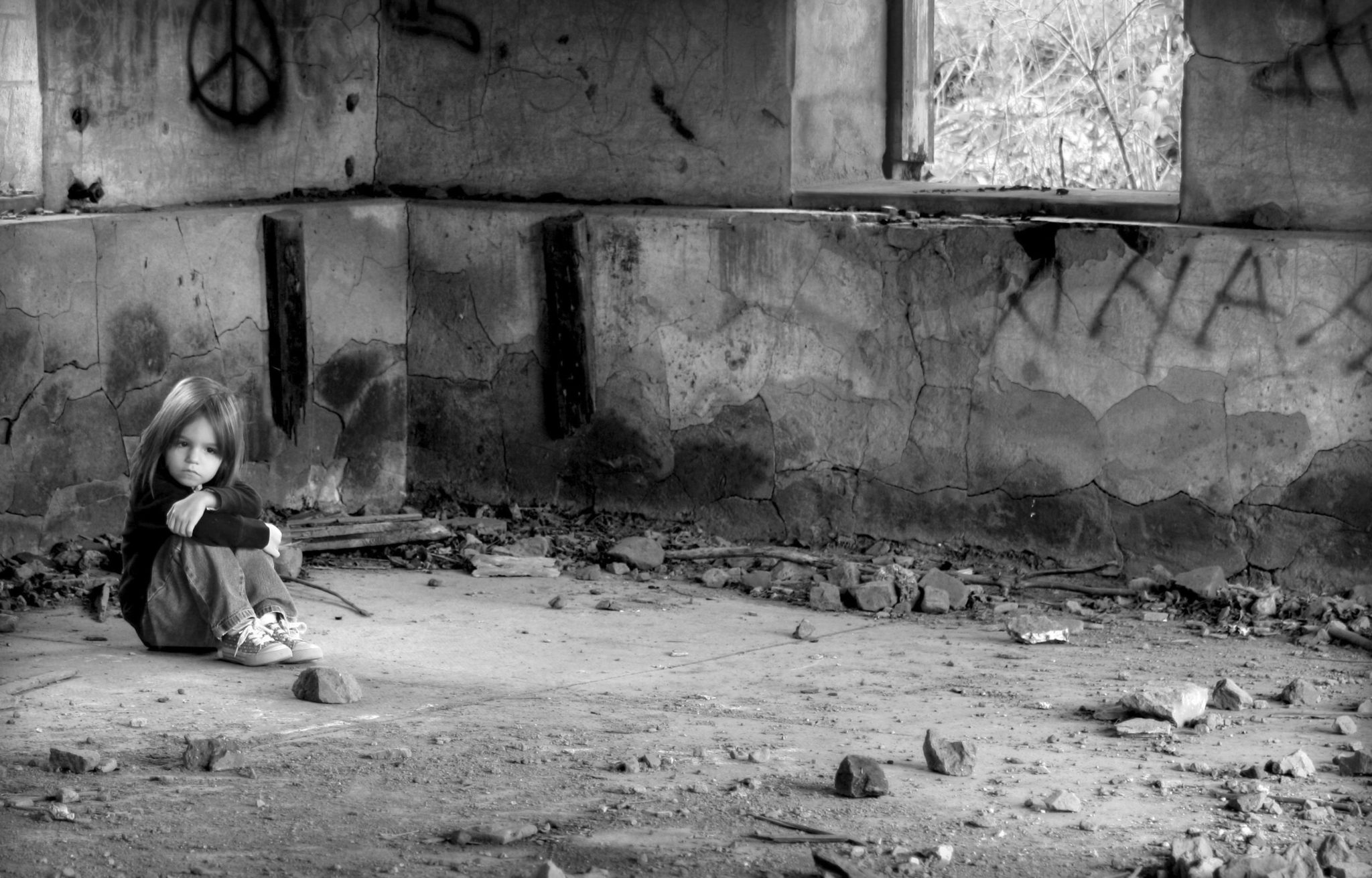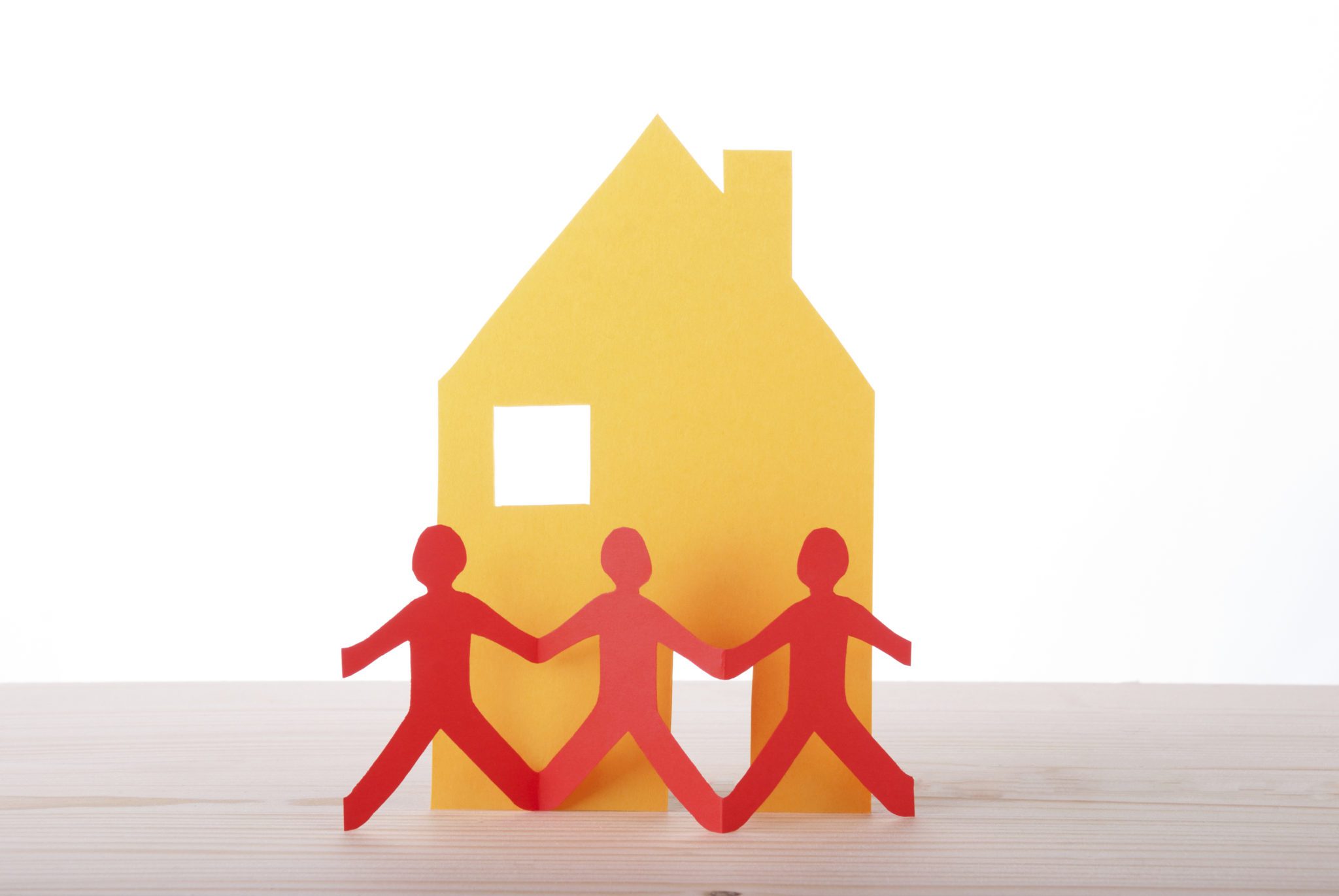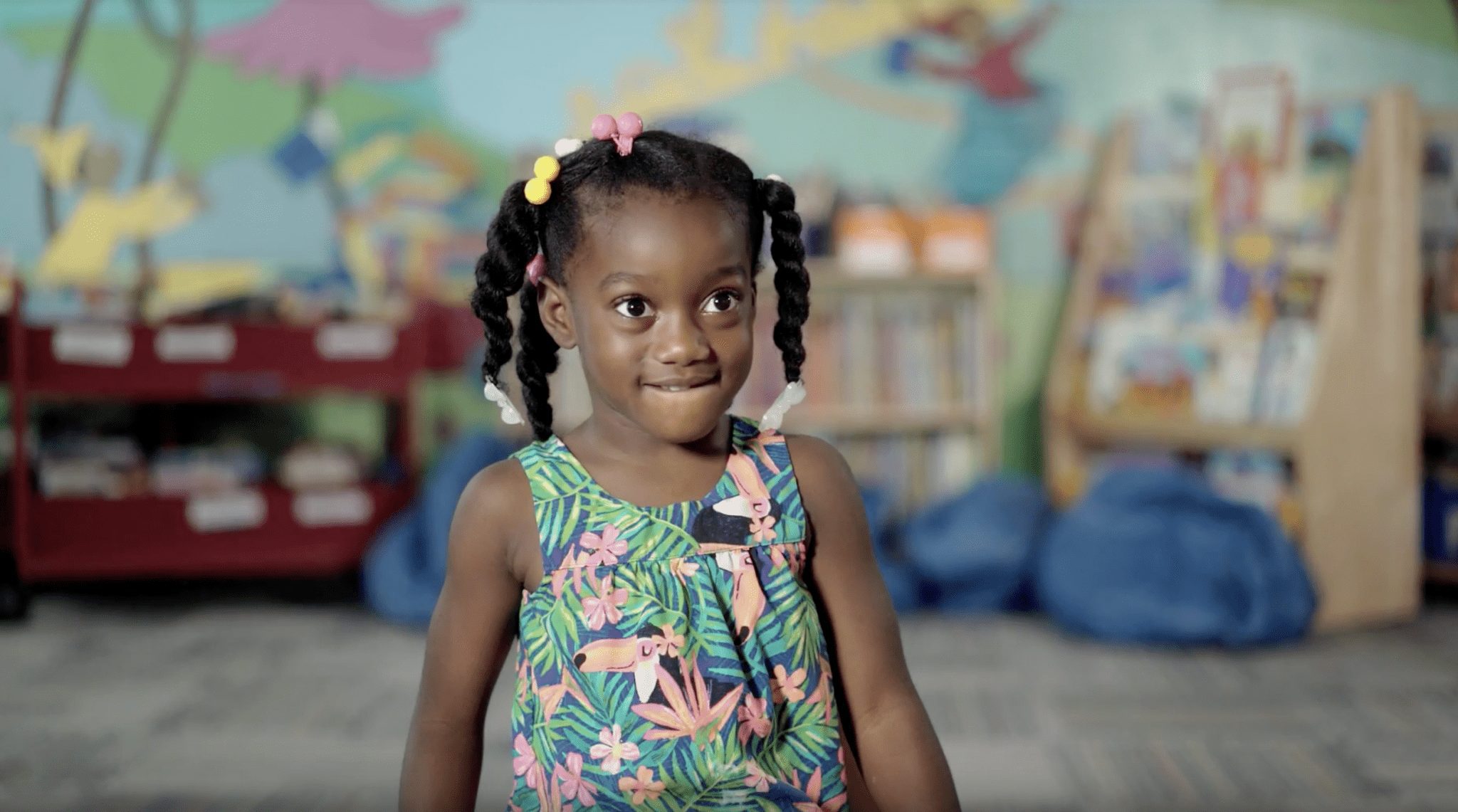The Plight Of Child Homelessness In The United States

Posted in: Grade School, Hot Topics, Infants & Toddlers, Podcast, Pre-School, You & Your Family
Topics: Hot Topics
This is the first blog post of a series in collaboration with the Lesley University Child Homelessness Initiative (CHI). For more information about the CHI curriculum, and the ways in which it seeks to empower the next generation of teachers and caregivers to understand and advocate for homeless children, visit their website.
Intro music written and performed by Dr. Gene Beresin.
Outro music arranged and performed by Dr. Gene Beresin.
No one wants to think that a child could be homeless.
In the setting of these untenable thoughts, humans have been known to fall prey to the understandable and yet simultaneously maddening antics of the ostrich. When we see something awful, when we contemplate circumstances that we find reprehensible, when we are faced with what feels like an insurmountable problem, we tend, sometimes, to bury our heads in the sand and pretend that the problem doesn’t exist.
It turns out, however, that this strategy works poorly for both the ostrich and for us. Humans are remarkable creatures, and if we allow ourselves to stare into the daunting face of human misery, we can go a long way toward alleviating suffering.
Such is the case with the epidemic of child homelessness.
Homelessness is, sadly, nothing new to our nation. We are accustomed to seeing and providing shelter to homeless individuals in our cities and towns. However, we tend in both policy and popular press to pay little attention to the rapidly growing number of homeless children in the United States. It is, in fact, this very predicament that has inspired a collaboration between the Child Homelessness Initiative (CHI) at Lesley University and The Clay Center for Young Healthy Minds at Massachusetts General Hospital. As researchers and scholars at Lesley know well, the plight of the homeless child has far-reaching and lasting repercussions. Fortunately, there exist multiple educational, public policy and mental health interventions that can begin to alleviate these challenges.
The purpose of this opening article is to outline the general state of child homelessness in the United States, and then follow with an understanding of the impetus for the tremendous success of the CHI curriculum at Lesley University here in Boston. We’ll end with our plans for a brief series of educational blog posts and podcasts. It’s our profound hope that these discussions will jump-start multiple levels of intervention. In other words, this is a solvable problem—but not without a good deal of elbow grease.
The statistics with regard to homeless children are staggering. According to The National Alliance to End Homelessness, adults and children in families make up about 33 percent of the homeless population. in the United States. That’s a mind-boggling number. From 2012 to 2013, the number of children experiencing homelessness annually increased by 8%. Major causes include: 1.) an increasing level of poverty, 2.) a lack of affordable housing, 3.) the continued impact of the recent recession, 4.) the challenges of single parenting, and 5.) the consequences of traumatic experiences, including domestic violence.
Importantly, homeless families have a potentially different set of challenges than do homeless individuals. Homeless children are at greater risk for difficulties in educational, social and emotional development. Their parents are at higher risk for unemployment. Adequate parenting itself becomes increasingly difficult in these trying circumstances. Health problems in general are greater for children below the poverty level, including psychiatric syndromes and chronic conditions such as asthma. The psychological effect of trauma, including post-traumatic stress disorder (PTSD), is the rule and not the exception for homeless youth. In fact, trauma itself poses a special challenge in helping homeless children. Whereas we have well-established systems for aiding homeless individuals who suffer from psychotic syndromes or substance abuse, these mechanisms are substantially less useful for traumatized homeless young people. Thus, our public health infrastructure is far from adequate for the millions of homeless children who require its aid.
Homeless children have frequently moved multiple times. The trauma associated with multiple relocations is much more significant for a child than for an adult. The rapidly developing brain craves stability for healthy growth; children who are subject to frequent moves with unpredictable levels of safety are prone to a sense of heightened awareness that can predispose them to worse psychiatric problems downstream. As we’ve noted, PTSD, anxiety, panic and depression are all more common in this population—and in adults who were themselves homeless as children. Additionally, more than 90% of homeless women, many of them young, single mothers, have been physically or sexually assaulted. The Institute for Children, Poverty, and Homelessness reports that 80% of homeless children have witnessed a serious violent event by age 12. These young people are therefore at very high risk for multiple psychological challenges.
Since most homeless families are comprised of single mothers, many of whom are only in their 20s, the trying setting of homelessness exposes these young caregivers to their own set of developmental struggles. PTSD in these women is about three times more common than in age-matched peers, and a traumatized mother is a well-known risk factor for psychological difficulties in her children.
These statistics beg an important series of questions:
- Given the magnitude of these problems, what should we do?
- How should we even begin to approach these daunting issues? Put another way, what is the obligation of a responsible society to its homeless children, and how can we establish best practices?
Let’s first look at what’s missing.
We clearly need a greater number of safe, affordable housing options. We need more easily-accessible educational and employment opportunities for parents. And, we need ample and consistent medical and psychiatric care for homeless families.
However, to accomplish these goals, a comprehensive needs assessment of all homeless families is in order. From an educational perspective, this is exactly the work that is being done by the folks at Lesley University. From a mental health standpoint, however, we are clearly behind where we should be. Even Massachusetts, with all its social programs and healthcare endeavors, falls short of reasonable accommodations.
But, for the purpose of this blog, let’s learn more about the strides that the Child Homelessness Initiative is making.
The Child Homelessness Initiative (CHI) at Lesley University
Laurie Schoen is a pioneer, and it’s her pioneering efforts, collaborative spirit and advocacy that originated the Child Homelessness Initiative at Lesley University in 2011. A collaborative effort led by Dean of the College of Liberal Arts and Sciences Mary Coleman, as well as faculty members Dr. Lisa Fiore and Dr. Jan Wall, the CHI curriculum has done much to inspire a new generation of students, and further its goal of advancing the life chances of homeless infants and toddlers in Massachusetts.
The mission of CHI is to prepare Lesley University students—the next generation of teachers, policy advocates, counselors, neuroscientists and expressive therapists—with a trauma-informed asset model that enables practices and policies which maximize infant and toddler health, happiness and well-being; secure their protection from injury and insult; and advance their educational opportunities and citizenship.
The trauma-informed model for CHI 1.) examines the relationship between child homelessness and trauma, and the vulnerability that chronic trauma and homelessness create, 2.) advances an understanding of the developing brain of traumatized infants and toddlers, 3.) offers a curriculum in which resiliency and functional adaptations to vulnerability can be learned and internalized by children and parents, as well as social service/childcare providers and educators, and 4.) builds policy advocacy skills to address systemic determinants of child homelessness, and pathways that advance the life chances of infants, toddlers and their families.
With this approach at its core, the curriculum comprises online and in-person courses that examine the structural origins of homelessness; determinants of parental resiliency; the vital role of play and reading in infant and toddler development; and neurobiology. Further augmenting this holistic educational experience are student service organizations, internship offerings and experiential learning opportunities that encourage an analytical focus on the linkages among child development, emotional attachments, well-being and equal opportunity.
Since its inception, the Child Homelessness Initiative has had a tremendous impact on Lesley University students and graduates across a variety of programs, as illustrated by the following student observations (regarding the cornerstone CHI course):
“Since I have started this course, I have found myself more aware of my surroundings and the growing problem of child homelessness in not only other countries, but in the United States. Each engaging group discussion develops another insight, new perspective, or behavioral change that evokes our passion to know there is hope to make a difference here and now.” – Courtney Miranda, Major: Holistic Psychology
“My experience thus far in the Child Homelessness course is truly outstanding. Not only is it an eye-opener, but it is also very informative. The structure allows different aspects to be covered by different professors, as well as others in the field who know that particular area well. It is a wonderful course that may start a miraculous movement against child homelessness, and in my opinion, change must begin with the proper education.” – Charda Davis, Major: Dual Degree Counseling
“Throughout the semester, I have learned a great deal regarding the subject of homelessness. Presentations have been enlightening, fascinating and informative, helping me to see more clearly the magnitude of this worldwide problem. Closer to home, on a more personal level, I am now more aware of the challenge that is facing my generation and the generations to come. Listening to my classmates, I have had some faith restored in humanity—that we might just be able to come together to help ease the pain of those suffering. Our speakers were powerful and inspirational.” – Nicholas F. Mollica, Major: Global Studies
The educational roots of the Child Homelessness Initiative extend beyond Lesley University’s walls to the greater community and state of Massachusetts, as evidenced by the annual conversation it hosts to raise awareness of the issues facing this vulnerable population. This year’s conference takes place on March 2, 2015, with a keynote address entitled “Our Kids: The American Dream in Crisis” by Robert Putnam, the Lesley University Paul Fideler lecturer.
Looking ahead, the next phase of CHI’s work involves the development of a certification program (the Lesley University Child Advocacy and Trauma Certificate), expanded experiential learning opportunities, the formation of the CHI Advisory Group, effective outreach and partnerships with schools and health organizations, and new, innovative curricula. These additions, combined with the strong foundation already in place, will ensure the legacy of Laurie Schoen’s pioneering efforts, and signal the nation’s capacity to help ameliorate child homelessness in our lifetimes.
Summary
Lesley University’s Child Homelessness Initiative demonstrates how an innovative program can become a starting point for effective intervention in the community. Because all children are required by a law to attend school, school itself becomes one of the only stable points of contact for homeless children and families. If teachers are made aware of the challenges facing homeless children, then schools can become safe spaces for both these children and their parents. School-based initiatives may well become the starting point for helping parents and children receive the comprehensive psycho-social and medical care they deserve.
From a mental health perspective, care must first and foremost be trauma-centered (that is, take into consideration the very high likelihood that traumatic events have occurred), and increasingly community-based. Good care also requires good follow-up. There are currently no standardized mechanisms in place to ensure the continuity of mental health care that is necessary to be maximally efficient. Indeed, if care is spotty, we run the risk of simply reiterating the same lack of predictable support these children have come to expect. We therefore require new medical homes in community settings that improve the access to care for these families. Otherwise, we foment hopelessness where we hope instead to create resilience.
Over the next two blog posts and podcasts, we here at The Clay Center, in collaboration with the folks at CHI, will review what appears to work in both educational and mental health settings. We will also make the point that to separate educational and psychological interventions is a false dichotomy; healthy children learn better, and well-educated children stay healthy more often.
Above all, we will not be ostriches. These are our children. The stakes are too high.

 Share
Share Tweet
Tweet








